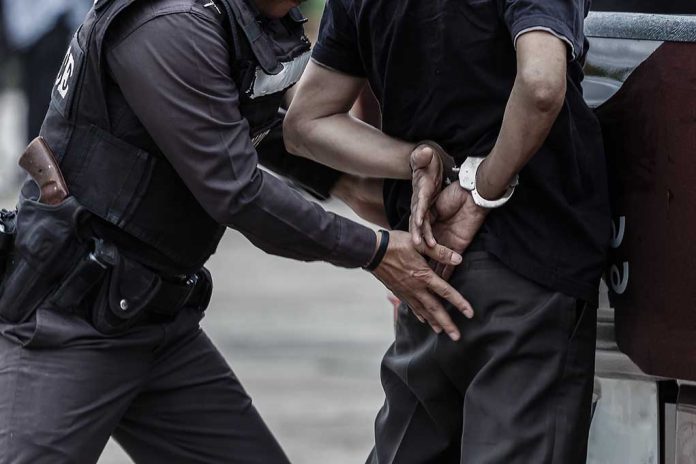
A coalition of 27 religious organizations has filed a lawsuit against the Trump administration, challenging a policy that lets immigration officers arrest individuals in places of worship.
Key Takeaways
- 27 religious groups are suing the Trump administration over immigration enforcement in churches and synagogues.
- The lawsuit claims the policy infringes on religious rights and violates the First Amendment.
- Religious groups argue the policy causes fear, reducing church attendance and participation.
- The Department of Homeland Security defends the policy, citing the prevention of criminal activity.
Religious Organizations File Legal Action
On a national scale, 27 religious groups have taken a stand against a policy reversal that authorizes immigration enforcement activities at churches, synagogues, and similar locations. This lawsuit, filed in U.S. District Court in Washington, includes Christian and Jewish organizations who assert that the policy infringes on their religious freedoms. The plaintiffs argue that the policy is in direct violation of the Religious Freedom Restoration Act (RFRA) and the First Amendment.
The policy allows Immigration and Customs Enforcement (ICE) to conduct operations in places historically considered sanctuaries, such as churches and schools, resulting in decreased participation in worship services and community programs. This impact is evidenced by attendance declines at church services and a tangible fear experienced by congregants, which diminishes their ability to offer help and a safe haven to those in need.
ICYMI: 27 faith groups sued the Trump administration over executive actions to remove protections for houses of worship from immigration enforcement activity. @SCarson_News reported on the news w/ a local faith angle about Wisconsin churches' involvement: https://t.co/ssvSwaSa1s
— Liam Adams (@liamsadams) February 12, 2025
Arguments from Both Sides
The policy’s defenders, notably the Department of Homeland Security, insist that allowing immigration enforcement in such locations is necessary to prevent places of worship from becoming sanctuaries for criminal activity. DHS Assistant Secretary for Public Affairs, Tricia McLaughlin, commented that the policy ensures protection against exploitation by criminal elements. Meanwhile, the plaintiffs maintain that the policy imposes a heavy burden on their religious practices, requiring them to make a troubling choice between adhering to their faith and exposing undocumented immigrants to detention.
“One of the most frequent directives found in the Bible is caring for those who come to us from another place. Not to be allowed to do so is to be denied a basic tenet of our faith,” said Rev. Jennifer Copeland, executive director of the North Carolina Council of Churches.
Further complicating the matter, some conservative faith leaders express that places of worship should not be considered sanctuaries for illegal activity, emphasizing that fugitives or criminals are not immune from law enforcement simply due to the sacred nature of their location. This debate encapsulates a broader national discourse about the intersection of immigration enforcement and religious freedom.
Repercussions and Seeking Justice
The religious coalition is seeking both preliminary and permanent injunctions against these enforcement activities. The groups involved in the lawsuit range from the Episcopal Church to the Union for Reform Judaism, representing millions of worshippers from diverse faiths. They emphasize their religious duty to support refugees and immigrants, no matter their legal status, underlining that faith obligations are being undermined by the current administration’s policy.
“Allowing immigration enforcement activities at Gurdwaras is already preventing some from attending, which harms the entire Sangat,” said Sikh Temple Sacramento board member Amar Shergill.
Legal experts remain divided over the likelihood of success for the plaintiffs in their religious freedom arguments. However, the lawsuit brings to light the multicultural and multi-faith concern over maintaining safe spaces for worship without the looming threat of immigration raids. The decision in this case may have significant implications for similar lawsuits, such as one filed by Quaker congregations in Maryland, challenging similar policies.





